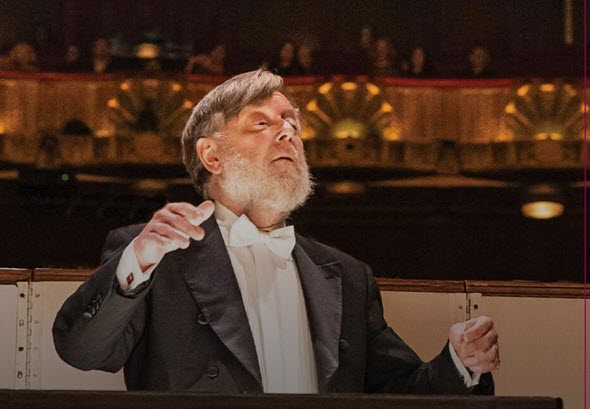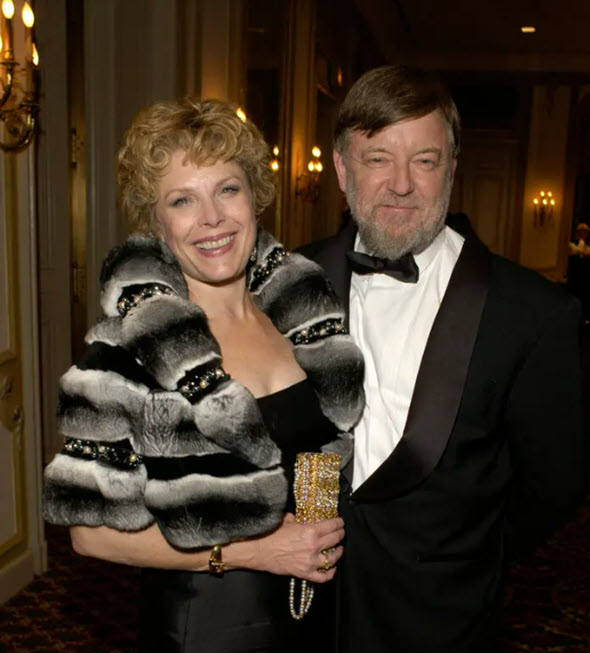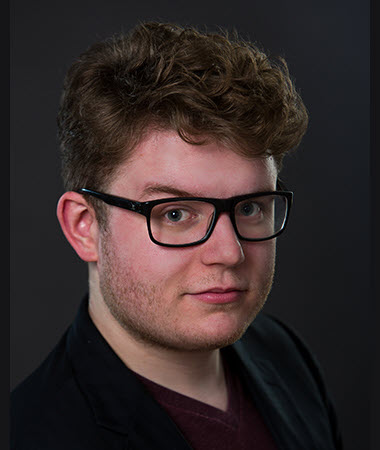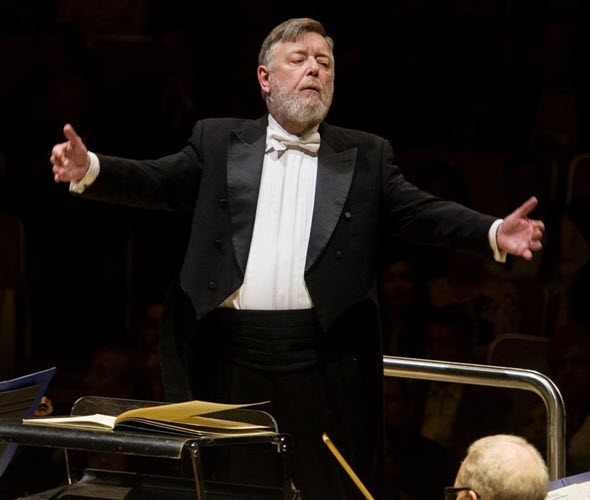As Andrew Davis leads the Beethoven Ninth, spirit of Lyric Opera’s family spreads the joy
Review: Lyric Opera Orchestra and Chorus conducted by Andrew Davis, on April 1 at the Lyric Opera House.
By Lawrence B. Johnson
It was supposed to have happened some time ago, a time that dissolved into the miasma of Covid, before the curtain came down most unceremoniously on conductor Andrew Davis’ 20-year stint as music director of Lyric Opera of Chicago. This was to have been his fitting exit, his personal coda – a performance under his leadership of Beethoven’s Symphony No. 9 in D minor with the Lyric Opera Orchestra and Chorus. Finally, it all came to fruition April 1 at the Lyric Opera House, a titanic account of the Beethoven Ninth before a large and deeply appreciative audience.
The sense of a family affair was palpable at this concert dedicated to the memory of Davis’ wife Gianna Rolandi. She died in June 2021 at age 68 after a splendid opera career in which she won plaudits for her bright, agile soprano and her feisty characters. Following retirement from the stage, Rolandi had served as director of Lyric’s Ryan Center for pre-professional opera training. Three of the four soloists for this performance were products of the Ryan Center. Not the least familial component was something of a choral prelude to the Ninth Symphony, a work titled “A Seed of Joy” composed by Ed Frazier Davis, the conductor’s son.
Created for the occasion, “A Seed of Joy,” for unaccompanied chorus to a text by Charles Anthony Silvestri, begins with the proposition that “out of the depths of the human heart there grows a delicate seed, a seed of purest joy.” The poem observes that the emerging spirit of joy passes from heart to heart until “songs of joy resound anew.” If you can almost hear in that phrase Beethoven’s setting of Schiller’s “Ode to Joy” in the Ninth Symphony finale, your imagination is spot on: Wisps of Beethoven’s music well up in Davis’ vocal line.
In its last stanza, “A Seed of Joy” asks, Who shall take up this Joy, “this gift of brotherhood: Who shall be her voice?” Whereupon, without any break, the composer’s father summoned the Lyric Orchestra in Beethoven’s name and the Ninth Symphony commenced. I don’t know how many times I’ve heard the Ninth live, and I have often been moved by its ringing choral peroration. But I don’t recall ever before being aware of a mist over my eyes at the work’s very first chords in the orchestra – Beethoven’s reply here to the question of who will take up and spread the song of joy. It was as if the great composer were answering in a dialectic across time. The effect was wondrous.
Andrew Davis’ concept of the Ninth, aggressive and probing and clear, offered a resounding reminder of his long history with the orchestral repertoire. In his career, Davis has put in significant stints as chief conductor of the Toronto Symphony, the BBC Symphony and the Melbourne Symphony. While this was a visceral, potent Ninth, it was also almost defiantly slow, unfolding with a deliberation that stood in stark contrast to the modern tendency of conductors to at least acknowledge Beethoven’s notoriously fast tempo markings.
Great credit goes to the Lyric Orchestra, especially the strings, for capturing the initial ferocity that Davis obviously wanted. That said, the effort perhaps took its toll. By the end of the ensuing scherzo, with its recurring swings from intensity to broad lyricism, the violins were starting to betray fatigue, and Beethoven’s radiant slow movement suffered from some mottled textures. No such lapses befell the woodwinds and brasses, however. Their technical discipline and – dare I say operatic – line bore up through the end.
In fairness, the strings refocused in the finale where, they come into the spotlight in the first full statement of the movement’s famous theme: basses and cellos first, followed by violas, then violins, each in turn pouring out Beethoven’s song of joy before dropping into contrapuntal support as the next group takes it up. I don’t know that I ever heard a more even-tempered series of transitions through that swelling wordless anthem.

Soloists clockwise from top left – soprano Mathilda Edge, mezzo-soprano Kathleen Felty, bass-baritone Eric Owens, tenor Matthew Polenzani.
–
The “Ode to Joy” itself, delivered by choristers positioned behind the orchestra and vocal soloists – soprano Mathilda Edge, mezzo-soprano Kathleen Felty, tenor Matthew Polenzani and bass-baritone Eric Owens – in front, was thrilling. While the four soloist were superbly matched, Polenzani was sensational in the stentorian tenor episode accompanied by military band.
In its big Beethoven moment, the Lyric Opera Chorus did not disappoint. The singers prepared by Michael Black evoked all the mysticism, jubilation, wonder and transcendence of music that aspires to a global commonwealth of life’s affirmation, of joy and brotherly love. Thus was the concert dedicated to Gianna Rolandi “with our love and admiration.” The admiration is historically documented. The love, roaring long and loud from an audience that quickly stood but showed no inclination to leave, was everywhere.





